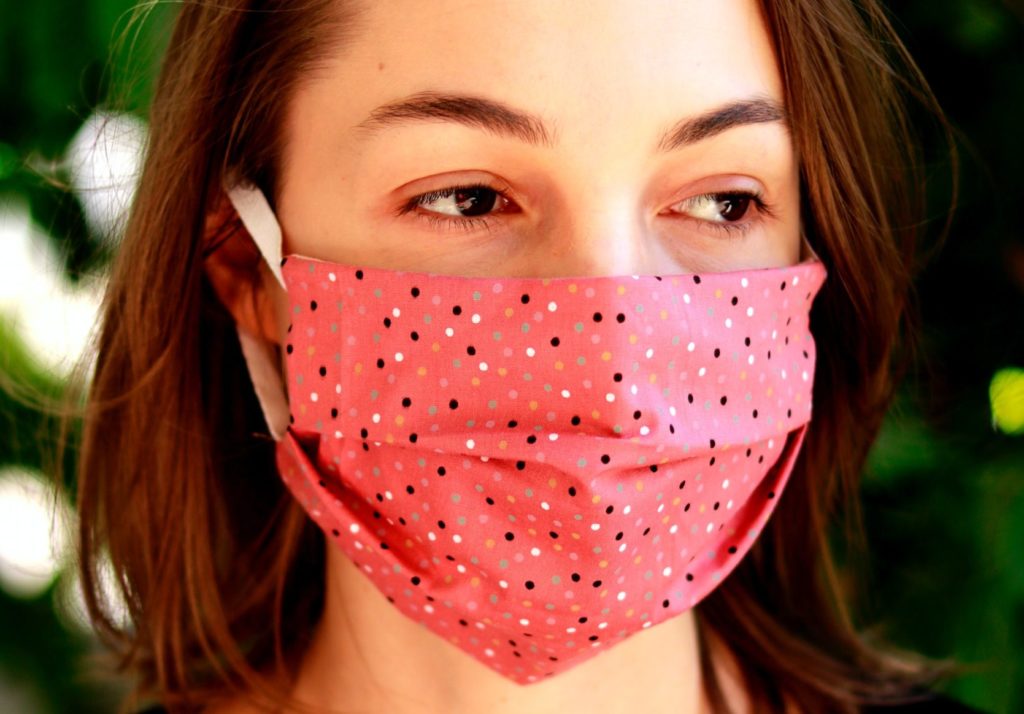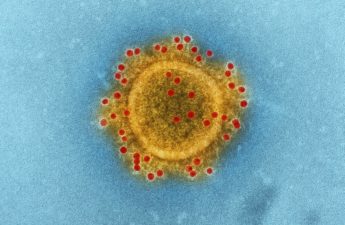Washington State Department of Health

Covering your face while in public is one of the easiest, least restrictive things we can do keep our interactions with other people safe. It’s more convenient than staying home, and it makes running quick errands safer. (Still, keep those interactions brief! Just do your business and go home.)
When do I need to wear a face covering?
The secretary of health’s statewide face covering order requires face coverings in any indoor place that isn’t your home and in outdoor places where you can’t maintain six feet of distance from non-household members.
How do cloth face coverings help?
The virus that causes COVID-19 is spread through our breath, when we talk, sing, cough, sneeze, or do anything else that involves breathing. A cloth face covering greatly reduces the distance our breath can travel, and that protects everyone.
How do we know?
When COVID-19 first started, there was very little information available about cloth face coverings. Researchers have been studying them much more recently, and it’s clear now that they definitely reduce the spread of the virus. Here’s a link to several of the most recent studies.
Which parts of my face need to be covered?
Your mouth and nose. Because you breathe through both your mouth and nose, you need to cover both. Now put some sunscreen on your forehead and ears, and you’re good to go!
I think I might have a medical reason not to wear a mask.
In rare cases, some people are not able to safely wear a face covering. If you think this may apply to you, ask your health care provider. Your health care provider may recommend that you stay home instead of wearing a face covering to go out.
I’m worried that a cloth face covering might make some people sick.
Rumors of cloth face coverings causing oxygen deprivation or carbon dioxide poisoning are not true. Cloth face coverings keep your breath from traveling very far, but they are absolutely not airtight. Oxygen and carbon dioxide pass easily through a cloth face covering. Many people — health care workers, painters, skiers, some modestly dressed Muslim women, and others — wear face coverings for long periods of time with no ill effect.
How often do I need to wash a cloth face covering?
Wash your cloth face coverings any time they get wet (even if it’s just damp from your breath) or dirty, and definitely if you have worn it all day. It may be more convenient to have several face coverings available for each person in your household. Keep your clean face coverings separate from the used ones. If it’s gotten confusing, round them all up and put them all in the wash with your next load. Throw away a disposable mask after a day of use.
My mask irritates my ears/nose/glasses/etc.
Experiment with different designs. Some face coverings have loops that go behind the ears, some have ties, and some stay on through other innovative designs creative sewers have come up with. Find something that is reasonably comfortable for you. Remember, what works for you might not work for kids or for larger headed people.
Do I have the right not to wear a cloth face covering?
Sure. The secretary’s orders only say you must wear a face covering when you’re around other people. You may choose to avoid situations where you are around other people. You also have the right to visit public places and not be put at risk of serious illness because someone else chose not to wear a cloth face covering.
Numbers. The latest numbers are on our webpage. As of 11:59 p.m. on August 9, 63,647 people in Washington have tested positive for COVID-19. Of those, 6,049 people had to be hospitalized, and 1,697 people (or 2.7%) have died of the disease. More COVID-19 data can be found on the DOH website and in the state’s risk assessment dashboard.
Practice compassion. Not only do we have rights, but, as human beings, we have responsibilities to those around us. Help keep others safe and healthy by wearing a cloth face covering when you are in public.
More information
Stay tuned to our blog for more information on how you can help stop the spread of COVID-19. Sign up to be notified whenever we post new articles.
Information in this blog changes rapidly. Check the state’s COVID-19 website for up-to-date and reliable info at coronavirus.wa.gov.
Answers to your questions or concerns about COVID-19 in Washington state may be found at our website. You can also contact our the Department of Health call center at 1–800–525–0127 and press # from 6 a.m. to 10 p.m. Monday — Friday, and 8 a.m. to 6 p.m. Saturday — Sunday. Language assistance is available.
Please note that this call center cannot access COVID-19 testing results. For testing inquiries or results, please contact your health care provider.


